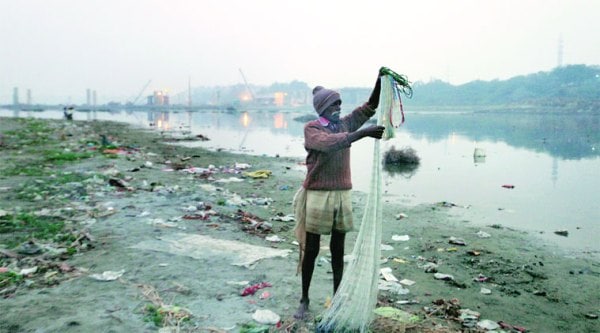- India
- International
Crops on Yamuna plains toxic: New study
It observes that the level of heavy metal contamination increases significantly after Wazirabad.
 The levels were higher after Wazirabad, the study finds. (Source: IE photo by Oinam Anand)
The levels were higher after Wazirabad, the study finds. (Source: IE photo by Oinam Anand)
Consumption of crops grown along the Yamuna can lead to serious health implications due to heavy metal poisoning, a study by Toxics Link — an environmental NGO — has found. According to the study, the presence of heavy metals such as lead, chromium, arsenic and mercury have been found in sediment samples at the river.
While the report notes that “there is no specific standard for heavy metal content in the sediment and soil”, it observes that the level of heavy metal contamination increases significantly after Wazirabad.
“The study found high level of heavy metals after Wazirabad in comparison to the samples collected before Wazirabad. This is a serious concern and suitable measures are required to check it,” the report says.
The team of researchers began their survey from Jagatpur village, North Delhi, travelling by boat along the river. They collected water samples from different locations — Najafgarh drain, Wazirabad, Majnu Ka Tila, near Vidhan Sabha drain, ISBT and Yamuna Bazar. High amounts of chromium, mercury and arsenic were detected in sediment samples in both pre- and post-monsoon samples.
The study concludes that the “the detection of heavy metals in the samples after Wazirabad may be due to discharge of waste water into the river from various canals and drains. The study notes, “as vegetables are being grown in the floodplain of Yamuna, it raises the issue of these vegetables being contaminated”.

“These heavy metals are not readily degradable and accumulate in animal and human bodies to a high toxic level. The increased population and the progress in agriculture and industry have complicated this situation,” the study says.
Apart from raising awareness about the issue and using technology to decontaminate the river, the study also recommends identification of sources of pollution and remedial measures to “decontaminate the river bed” of heavy metals.
Buzzing Now
May 04: Latest News
- 01
- 02
- 03
- 04
- 05




























